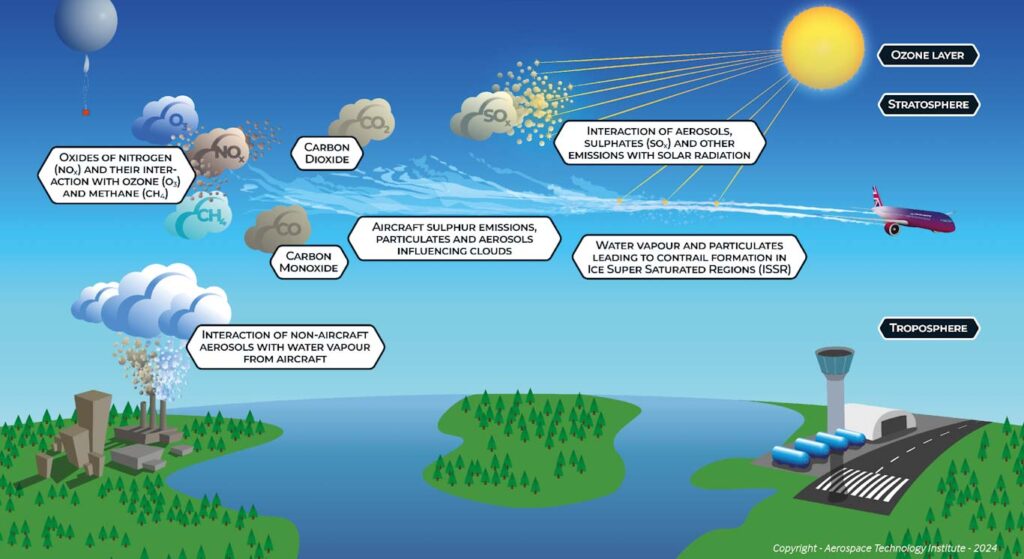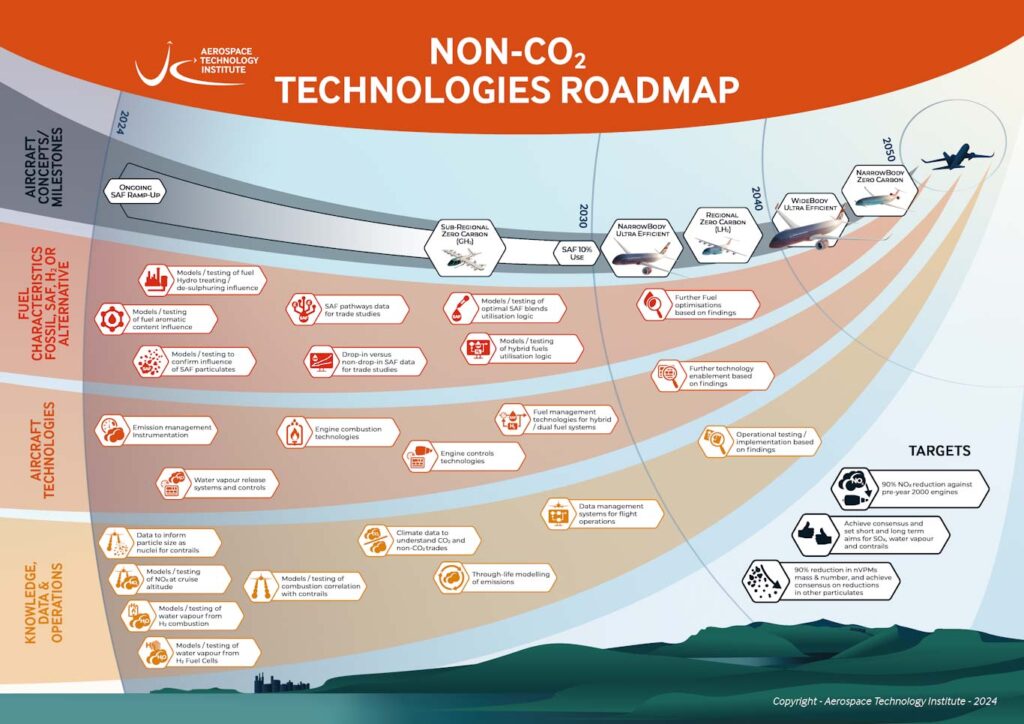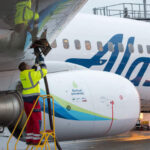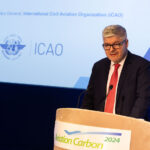The UK aerospace sector has published a first-of-its-kind Non-CO2 Technologies Roadmap that sets out a collective ambition to improve understanding of non-CO2 aircraft emissions and the technology advancements needed to address their climate impact. Non-CO2 emissions from aviation are considered to contribute a climate impact in terms of global warming but there remains a high level of scientific uncertainty as to the quantified impacts. Developed with input from almost 100 leading experts from industry and academia, the roadmap aims to reduce this uncertainty and deliver technology solutions to mitigate or prevent non-CO2 emissions during flight. The roadmap will also inform the activities to be prioritised for funding under a new non-CO2 programme managed by the Aerospace Technology Institute, UK Department for Business and Trade and Innovate UK. Meanwhile, in the US, engine manufacturer Pratt & Whitney has joined a FAA ASCENT project to study non-CO2 emissions from ground testing of conventional jet fuel and 100% sustainable aviation fuel.
Collectively, non-CO2 emissions refers to the direct and indirect effects of combustion found in aircraft exhaust plumes, aside from carbon dioxide, which research suggests could be greater than the impact of CO2 alone. The climate impact from aviation emissions at high altitude, such as the formation of contrails, is highly complex and variable. In addition, there are complex interactions and interdependencies between emission types, as well as variation in the persistence and length of time that different emissions impact the climate. Contrails, for example, can have cooling as well as warming effects.

Aircraft emissions and their climate interactions (© ATI)
The new funding programme aims at accelerating the research and development of technologies related to reducing these broader emissions. The ATI Non-CO2 Programme and the funding will support the UK government’s Jet Zero Strategy and its commitment to tackle aviation’s non-CO2 emissions.
The Non-CO2 Technologies Roadmap becomes the fourth pillar of the UK Aerospace Technology Strategy, ‘Destination Zero’, which guides industry and government investment into aircraft technologies, with the aim of “growing the UK’s share of the global aerospace market, supporting high-skilled jobs and leading the way on more sustainable air travel.”
Delivered in partnership with the UK Department for Business and Trade and Innovate UK, the ATI Non-CO2 Programme will focus predominantly on industrial research and technology development or enabling-technology projects. It will bring academia, government institutions and industry together to translate theoretical concepts into viable technologies. A new Expert Advisory Group is being created to bring industrial and scientific expertise to the programme.
“While reducing and eliminating carbon emissions rightly remains a key focus for aviation globally, advanced technologies being developed today should also consider broader atmospheric emissions,” said Gary Elliott, CEO of the Aerospace Technology Institute.
“As understanding of aviation’s non-CO2 impact grows, so too does the market opportunity and the UK is ideally positioned to unlock the technologies that will maintain global connectivity while meeting environmental commitments and delivering economic benefit across the UK.”
The Non-CO2 Programme will be funded through the ATI Programme, which, since its launch in 2014, has invested £3.6 billion ($4.5bn) of joint government and industry funding in aerospace technology R&D. ATI says up to £17 million over four years will be allocated to successful projects. The grant funding can be applied for during a two-week application process starting 13 May 2024, with the outcome expected by 18 June. Potential applicants can also join a webinar to hear more about the roadmap and programme on 18 April.
UK Industry Minister Nusrat Ghani commented: “I am delighted to see our world-leading aerospace sector propelling research and development to new heights of innovation in the pursuit of cleaner, greener air travel. This roadmap and programme will harness the world-class capabilities of UK industry and academia as they work together at the forefront of technological innovation to address globally significant challenges.”

(Clearer version of roadmap here)
In the United States, aerospace industry and academia are also working together to help understand and reduce the climate impact from aviation’s non-CO2 emissions. A project conducted under the FAA’s ASCENT programme by Pratt & Whitney, Missouri University of Science and Technology (Missouri S&T), Aerodyne Research and the Environmental Protection Agency will measure emissions from a Pratt &Whitney GTF engine combustor rig test stand using conventional Jet A kerosene and 100% sustainable aviation fuel.
The project will compare emissions from Jet A and SAF comprised of 100% HEFA-SPK supplied by World Energy. The rig tests will take place at Pratt & Whitney’s Middletown facility in Connecticut, using a Rich-Quench-Lean combustor. According to the engine manufacturer, the rig allows testing of the full range of combustor operating conditions, including at take-off, ground and cruise altitudes, to help better understand the environmental and emissions benefits of using SAF. The partners will collaborate on test design, execution and emissions data analysis.
“As the aviation industry targets a goal of net zero CO2 emissions by 2050, we continue to pay close attention to addressing the environmental impact of other emissions, including cruise non-volatile particulate matter and NOx,” said Sean Bradshaw, senior technical fellow of sustainable propulsion at Pratt & Whitney. “Combustor rig tests with 100% SAF provide a controlled environment for generating valuable baseline data, which will support future studies using full-scale engines on-wing at ground and flight test conditions.”
Added Dr Philip Whitefield of Missouri S&T: “SAF containing low sulphur and aromatic hydrocarbon concentrations could contribute to reduced sulphur dioxide and non-volatile particulate emissions, which are associated with contrail formation and the impact to global warming.”
















More News & Features
European and US research programmes expand to better understand aviation non-CO2 climate effects
T&E joins aviation and climate scientists in urging action to reduce warming contrails
European ECLIF3 flight test study shows significant contrail reduction with 100% SAF
IATA announces global SAF registry to be launched in Q1 2025
Airlines divide over new EU rules on monitoring and reporting of their non-CO2 emissions
SATAVIA reports results from 10-month contrail management trial involving 12 airlines